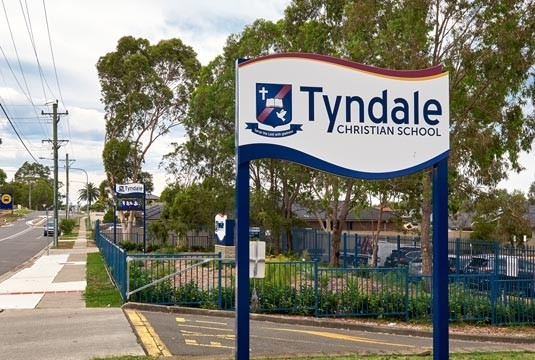Leaders of the Christian school lobby groups have struck a positive note after a meeting withe the Prime Minister Anthony Albanese and Attorney-General Mark Dreyfus. on Friday. “It was really great,” Mark Spencer Director of Public Policy for Christian Schools Australia (CSA) said on a video uploaded to Facebook. “We got commitments from the Prime Minister that people of faith and faith communities won’t go backwards. Well, he’s the Prime Minister of Australia which I think was really reassuring.”
Vanessa Cheng from the Australian Association of Christian Schools (AACS) was also reassured. ” We made clear the Christian schools non-negotiable need to be able to employ Christian staff in our schools and he seemed to get that and he said that was a reasonable request.”
Spencer and Cheng also attended a speech by NSW Supreme Court Justice Stephen Rothman at the Notre Dame University Religious Liberty Conference on Friday, where Rothman despite having led the Australian Law Reform Commission’s (ALRC) review of discrimination at religious schools, called for a “positive right” to hire staff based on their ethos.
That’s rather different from what the ALRC report recommended – but as reported in The Australian, Rothman says the ALRC was constrained by the Commonwealth Government instructions.
“He warned that people of faith felt ‘under attack and therefore insecure’, arguing a positive right should protect religious institutions adhering to their key doctrines. This would include allowing schools to direct teachers to adhere to church teachings when asked by their students about marriage, abortion and euthanasia.”
These events reflect the tension in the aims the Albanese government has set for itself. When he released the ALRC report, Attorney-General Dreyfus stated, “No Australian should be discriminated against because of who they are or what they believe. The government is seeking an enduring solution that strengthens protections for all of us – students, teachers, people of faith. And that’s why bipartisan support for solutions is essential.”
LGBTQIA students’ and teachers’ concerns are in tension with faith communities’ rights to run schools.
CSA and AACS represent the low-fee Christian schools sector with a conservative view on LGBTQIA issues. But not all Christians, even from some of the denominations affiliated with those schools share those views. A vital question will be whether individual schools can define themselves a “faith community” or not. Would a school on its own be able to say what a faith community stands for, or is it a question for a church?
Rothman’s advocacy for a “positive right’ for schools to select their own staff on a faith basis and teach according to doctrine appeals to a doctrinal basis set by a church. There are schools that would see themselves as almost a church, but most of them enrol children from non-Christian families.
Anglicans are split on the LGBTQIA question. Would a school’s faith community be decided by diocese (region) with Sydney taking a conservative view and Brisbane a progressive view?
There are Baptist churches with gay ministers – how would the federal government define the Baptist faith community? NSW/ACT Baptists have adopted a conservative stance, but the Baptist Union of Victoria allows for affirming (pro-LGBTQIA) churches.
On the other hand, Presbyterian schools could appeal to conservative doctrine on LGBTQIA issues – but in Queensland there is a joint Presbyterian Uniting church schools body. The large number of low-fee Christian schools affiliated of founded by the Reformed Church could cite that church as their faith community.
It may be that the Federal government will make the diocese or state branch of a church stand as a “faith community” – this will work in denominations with a mix of conservative and progressive regions, but would not work for a Anglican School in Melbourne – a mixed diocese.
And what about non-denominational independent schools?
And it is possible to be a member of a faith community, but not hold to the full range of doctrines a school holds. When is someone a Baptist, an Anglican or a Catholic becomes a key question. A rule saying that schools can prefer staff form a faith community may not give them the protections they want. A Catholic with liberal social views could still fit the definition, even if a Catholic school has a desire for conservative staff. Some churches have strict definitions of who is a member but others do not.
If a positive right to select staff, or teach according to a faith community is successful – and the optimism expressed by Spencer and Cheng leads to a positive outcome – it may be that many schools will have to strengthen and possibly change their relationship to a sponsoring church or faith body. (Another possibility is that It may be that CSA or AACS will successfully lobby for schools to define themselves as a faith community, but this has not shown up in the public debate.) Schools currently run at arms length from their church body may need to establish what is church teaching, and who qualifies as member of a faith community.
Image: Tyndale Christian School sign – used as a representative sample of a school affected by the debate.

